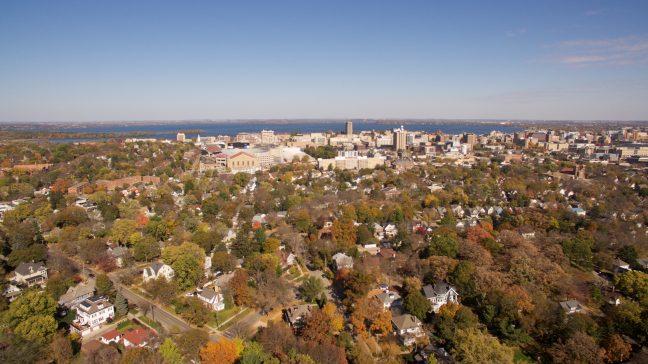There is no question the recovery from the 2008 Great Recession has been sluggish, and Wisconsin has not been immune to this phenomenon. In September 2016 after eight long years, our state finally matched pre-recession job levels.
While this is a good sign, more good news is not in store.
A recent University of Wisconsin Extension study found that with few college-educated people moving into our state and an economy that is generally producing low-skilled jobs, Wisconsin is primed for a challenging future. This is caused by, in my estimate, a lack of education funding and unpreparedness for Wisconsin’s and America’s economic future.
The Center for Regional Development came out with a report in 2014 that illustrated the changing nature of the Midwest’s economy from 2000 to 2013. In Wisconsin, the sectors that had the highest employment gains were in natural resources and mining, education and health services and professional and business services. These industries increased by 45.1 percent from 19,085 to 27,693 Wisconsin jobs, 21.4 percent from 501,242 to 608,425 Wisconsin jobs and 21.3 percent from 246,687 to 299,130 Wisconsin jobs, respectively.
Education and health services and professional and business services accounted for nearly 160,000 new jobs. These are service-based industries that require a college education.
Over this same time period, the biggest job loser was in manufacturing, where there was 23.3 percent job loss. This moved the total employed in that field from 593,539 to 455,399, a loss of nearly 140,000 jobs. The share of employees in Wisconsin working in manufacturing went from 21.7 percent of the workforce to 16.7 percent.
This is just proof the nature of employment in Wisconsin is changing from a blue collar workforce less dependent on a college education to more of a skilled-based workforce. But we have not been preparing for this.
The UW study notes, “Particular attention is paid to the notion of the ‘brain drain’ where it is believed that Wisconsin is disproportionately losing more highly educated people. We find Wisconsin suffers from the lack of a ‘brain gain’ or more highly educated people are not moving into Wisconsin at rates comparable to our neighboring peers.”
New UW System career website good start to keeping graduates in Wisconsin
So, our problem is not losing our educated people, it’s not getting particularly educated people to move to our state. If we cannot attract educated people into our state, we must educate our own state’s citizens. Since 85 percent of Wisconsin residents who enroll in a UW System school stay in Wisconsin, it’s a pretty safe way to increase the skills of the average Wisconsinite.
New website looks to connect UW System Graduates with Wisconsin jobs
The UW and UW Extension report makes a point to say that in Wisconsin’s future, there may be a skill mismatch and job polarization where every job will either require no secondary education or at least a bachelor’s degree worth of education. But this is only due to the state’s current policies.
What the study suggests, and I fully agree with, is analyzing more fully what the growth sectors in the state are, where specifically do we see these sectors of growth and how we can incentivize our college students to go into such a field or work at such a place. This can be accomplished through surveys and open dialogues between high schools, two-year programs, four-year institutions and Wisconsin businesses to get a sense of what employers need.
One way to make this more appealing for students is through the implementation of sponsored education, where employers pay, either partially or entirely, for a student’s higher education. In turn, this student must work for the employer for an allotted amount of time.
Not enough Wisconsinites with skills is not the only problem. We need to make sure we have the right skills. As the study states, “Wisconsin does show signs of a troubled education pipeline that has resulted in a relatively small share of the workforce that is college-educated. This alone may be concerning if the goal is to train workers for stable, high-paying jobs with opportunities for advancement.”
Aaron Reilly ([email protected]) is a sophomore majoring in social work and economics.














